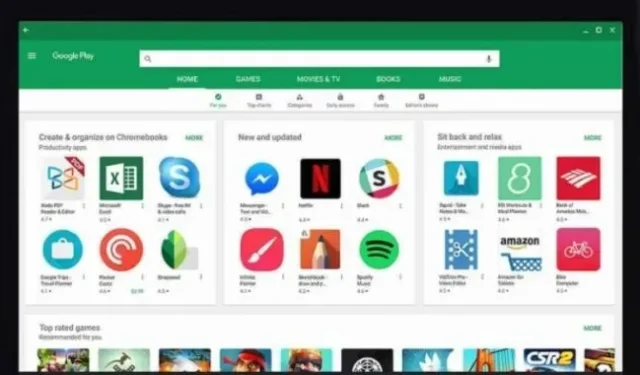The number of people using Android apps on Chromebooks is up 50 percent in a year, according to a blog post by Chrome OS Product Managers Fahd Imtiaz and Sanj Nathwani this week. The executives cited internal Google data recorded for 2020-2021.
In 2021, with some smartphones moving to Android 12, Google has been working on updating Chromebooks to support Android 11 in an attempt to improve security and performance by bringing Android to Chrome OS in a virtual machine instead of a container. The company has also improved overall usability using runtime improvements to resize and scale Android apps on Chromebooks, as well as app rendering.
As noted in a developer-focused blog, Chromebooks running Chrome OS 93 or later (latest version is Chrome OS 96) automatically launch Android apps built for mobile devices in a window that’s configured to stay in “phone or tablet orientation.”. And yes, you can disable this feature.
In addition, Imtiaz and Natwani pointed to the Android Nearby Share feature coming to Chrome 96 for Android 11 and Android 9 apps as another way to get developers interested in making their apps fit larger screen devices.
Google wants it to be a priority for developers
In May, Google reported that usage of the 10-year-old operating system (OS) was up 92 percent year-over-year, reportedly “five times the pace of the PC market.” At the time, Patrick Fuentes, Developer Relations Manager for Chrome OS, said this made Chrome OS “the fastest growing and second most popular desktop OS”.
Understandably, the operating system is betting on Android apps to help continue this growth. In fact, a blog post this week argued that “there is no doubt that adapting to larger screens will be a priority for developers in 2022.”
The blog talks about ways to create new apps that will take advantage of Android on Chromebooks, such as Jetpack Compose 1.0, a UI toolkit, and Android Studio Chipmunk, a layout checker tool designed to make it easier to create responsive layouts that work across different types of devices, from phones to desktop PCs.
Google also emphasized that Chrome OS supports the Unity game engine to make Android games as advanced as RPGs.
“With Unity 2021, 2020, and 2019 LTS, you can support x86 and x86_64 based Chrome OS devices using your IDE to reduce code duplication and make publishing easier,”the blog post reads.
Looking ahead, the changes to Chrome OS could eventually make the presence of Android on Chromebooks more convenient. A Chromium Gerrit fix discovered earlier this month indicates that Google is working to make Chromebooks less sluggish at startup by temporarily restricting the Android runtime for the Chrome VM at login, when it can reportedly gobble up up to 300 percent of CPU resources for some minutes.
Additionally, Android 12L is currently in developer preview. As reported in October, the OS is marketed as being optimized for larger screens than smartphones, so the Chromebook’s viewing angle is essential.


